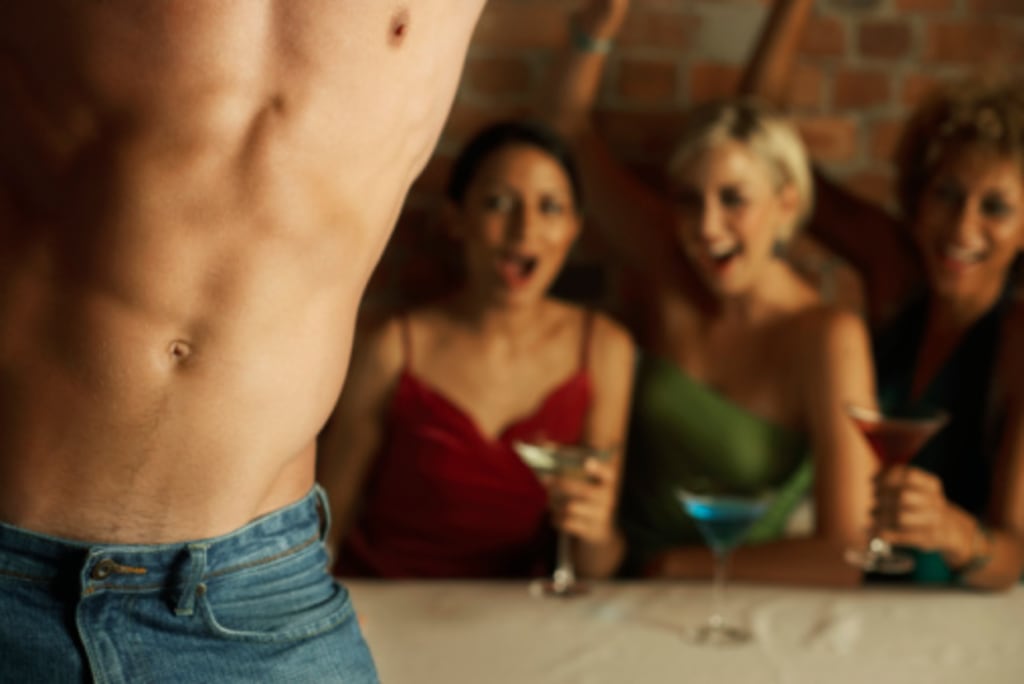Objectification or Admiration? - The Problem With Sexuality In The Media
Ronda Rousey became the latest to be objectified as mainstream media becomes more and more over-sexualized.

This may garner me with an abnormal amount of disdain, but this weekend I saw a post on the Creators Facebook Page that got me thinking in general about sexuality in the media. The meme was shared to the page with no ill intent, yet there were several creators, myself included who took offense at it: not because of the image, but because of the text that accompanied it - stating "Ronda Rousey looks better lying down anyway." - At the time meant it was meant to reference Rousey being knocked down in a fight that was supposed to be a win for her, but the sexually-infused meme, was not simply poking fun.

The image itself is from a photoshoot of Ronda Rousey for the Sports Illustrated Swimsuit Issue. It is from a set of photos where Ronda is showing off her beauty and her athletic build. The entire set was wildly successful and even led to a followup interview with Rousey in mid September talking about the shoot and how she feels about being a sex symbol. She explains in the article that her intention wasn't to become a sex symbol, but rather that she was playing a role for the day, even going as far as to say this about the specific image used:
I really like the one laying down on the bar. There was a serious one and the smiley one. I think I like the smiley one better but they used the serious one. I remember that was a part of the day when I felt most comfortable and I think you could tell in the picture I was more comfortable than any other shot that day.
She wasn't trying to be overtly sexual in her pose, she was simply comfortable and it was very obvious that she was completely comfortable in the pose, yet when added with the meme text the image turns from admiration of the physical form and the beauty of an athlete to that of an innuendo-laced implication that as a friend phrased in her response:
...she wanted to show off her athlete's body, her beauty - not have it be implied that the only thing she's good for is to be an object that should lay down.
There was a debate between several creators about the purpose and reception of the image, and the debate was short with both sides basically just diffusing the tension and parting ways. The problem as I see it is that what some see as objectification others see as admiration, and there is very little common ground. Our current media trend, heck entertainment's trend overall since before the days of Marilyn Monroe in the 40's and 50's has focused on the concept that 'sex sells' because ultimately it does sell.
So because our media has become so saturated with sexuality, it is easy to see where the line between admiration and objectification has become severely blurred. Normally, most people associate objectification with the idea of a man believing that a woman is something that is conquerable; a trophy if you will... except in reality objectification goes both ways - especially in media.
In general, men could really care less if we're objectified because we don't have to struggle with any of the downfalls of objectification as many women do. There is this concept known as the 'male gaze' - a widely accepted concept - which is the idea that nearly all forms of media are created specifically to play into the satisfaction of the straight male in the audience. The 'male gaze' is thought to create a culture where men look and women are looked at, where men are subjects and women the objects.
For a long time, that culture has been the overwhelming status-quo but with the influx of women in media and entertainment culture there has been a shift in marketing and a shift in how to draw in the female population in a similar fashion to how it drew in men. Perfect examples; Fifty Shades of Grey & Magic Mike. Two movies that can probably both be classified as movies that you didn't see because of the plot.
Both movies were also primarily attended by women, Fifty Shades having an opening weekend demographic of 68% women. The sexual nature and innuendo and nearly naked men are one main reason why these films were received as they were. The same can be said for many movies where the female characters are scantily clad. I am in no way saying that they are different situations, because ultimately they all boil down to the fact that our culture has grown accustomed to objectifying the opposite sex: subconsciously and consciously at times.
Objectification is not okay. Period.
No matter what the situation, objectification is not okay unless you're talking about an actual object - not a living, breathing human being. Yet, it's become 'normal' to see sexified men and women on nearly every page, on nearly every screen it's there. It's become so normal, that it's become almost desensitizing. It's there but the more we see it, the less it bothers us.
The problem isn't with the movie-goers or the magazine-readers, it's with the media in general. Because it's been such a slow burn in regards to the desensitization of our culture. Check out some of these stats:
- In 1965 I Dream of Jeannie pushed the envelope for showing a woman in a bikini.
- 1976-1981 Charlies Angels stirred controversy for featuring scantily clad female lead characters.
- 56% of shows included some sexual content in 1998, grew to 70% in 2005.
- Between 2006 and 2010, 786 movies were flagged for nudity.
- 934 movies have been tagged with 'male nudity' 1556 with female nudity on Listal.
- 154 movies are listed to contain full-frontal male nudity versus 118 with full-frontal female nudity. [Source: Visually]
It's easy to see the shift in the culture over the years as sex and the visual representation of sexuality has taken the forefront of our media and entertainment culture, and even though there's no way to truly buck the trend because honestly it's here to stay, we can still all choose to understand the difference between objectification and admiration. It's one thing to admire beauty, sexuality, desirability but it's another thing completely to objectify beauty, sexuality and desirability in a way that is demeaning to one gender or another.
Thank you for reading my rant. I appreciate you sticking with me as long as you did.
About the Creator
Matthew Bailey
Husband. Father. Gamer. Cinema Lover. Mix it all together, and there I am. I love all things pop-culture and coffee; but coffee is the best.






Comments
There are no comments for this story
Be the first to respond and start the conversation.